Brazil's Neves aims to follow grandfather to top job
- Published
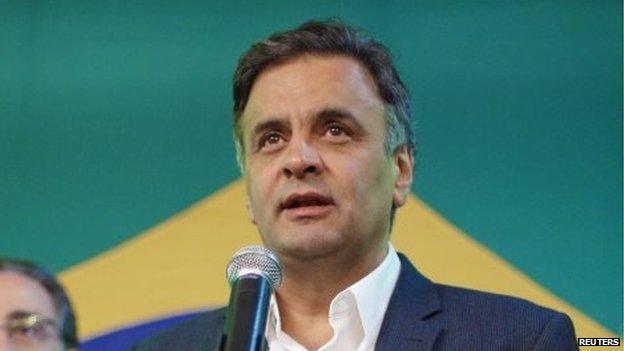
On Sunday, Senator Aecio Neves of the centre-right Brazilian Social Democracy Party surprised pollsters when he sailed into the second round of the Brazilian elections, beating environmentalist Marina Silva into third place by a comfortable margin.
Opinion polls had suggested a tight race between him and Ms Silva for the second place which secures the candidate a coveted space in the run-off election on October 26.
On the day, he won 34% of the vote, well behind Ms Rousseff's 42% but also firmly ahead Ms Silva's 21%.
In the three weeks until the second round, Mr Neves is likely to remind voters of his family's deep links with the country's path to democracy.
Family links
A former governor of the south-eastern state of Minas Gerais, he is the grandson of Tancredo Neves, whose death in 1985 - shortly before he was due to become the first president of post-military dictatorship Brazil - caused commotion in the country.
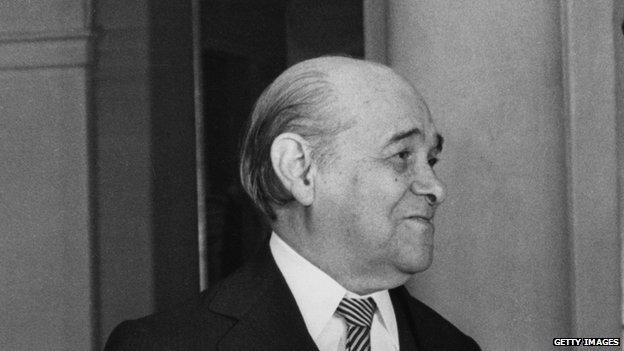
Tancredo Neves was elected president in 1985
But stemming from a family from Brazil's traditional white elite has not always been to Mr Neves's benefit.
His love of lavish parties has been described as being out of sync with the needs of a complex emerging country.
Last year, thousands of young Brazilians expressed their discontent with traditional politics when they protested for weeks against poor public services, corruption, police repression, and what they considered the excessive costs of hosting the World Cup.
But Mr Neves says he has settled down. He married former model Leticia Webber, 34, last year and in June she had twins, adding to the daughter Mr Neves has from a previous marriage.
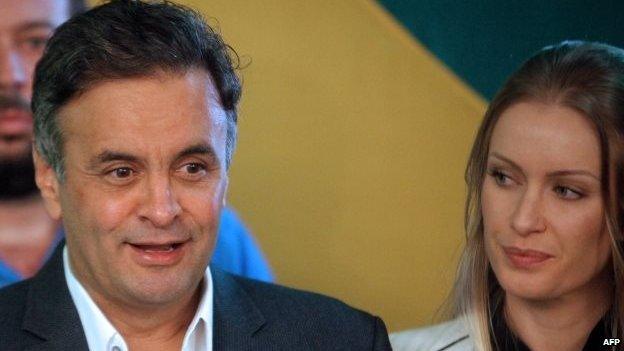
Mr Neves married ex-model Leticia Weber last year
His supporters say he is ready to take on the challenge of leading the world's seventh largest economy.
They point to his remarkable performance from 2003 to 2010 as governor of the state of Minas Gerais - an economic powerhouse and, as it is very populous, of key importance in the election.
State powerhouse
During his seven years as governor, he cut state expenditure, boosted tax revenues, improved the level of education and health and turned Minas Gerais into one of the most business-friendly states in the country.
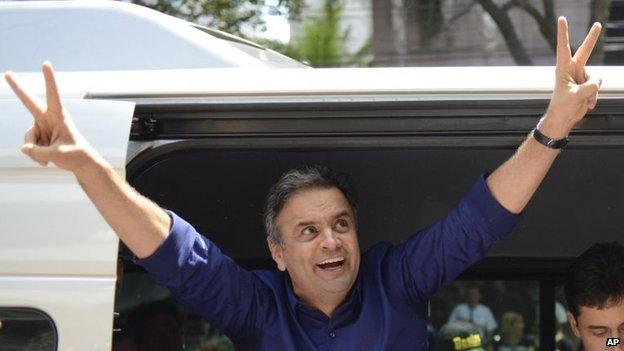
His supporters proudly point to Mr Neves's performance as governor of Minas Gerais
And yet he failed to beat Ms Rousseff in Minas Gerais, where he received less than 40% of the votes, against slightly more than 43% for the incumbent.
Aecio, as he is known among Brazilians who like to call their presidents by their first names, presents himself as the right candidate to take over an economy in which growth - once at 7.5% a year - has stalled.
But the 54-year-old economist's fondness for such terms as "management shock" and "efficiencies" may not go down well with Brazilians who have benefitted from the current government's income-redistribution policies.
Mr Neves has yet to explain how he would tackle inflation and streamline public finances without hurting public services or laying off public sector workers.
Ms Rousseff has warned that a vote for Mr Neves could "revive ghosts of the past", referring to his party's time in power between 1995 and 2003, when then President Fernando Henrique Cardoso ended rampant inflation at the expense of industry, jobs and economic growth.
Clashes ahead
The two candidates are poised to clash bitterly over their views on the handling of Petrobras, Brazil's state oil giant and arguably the country's main economic asset.
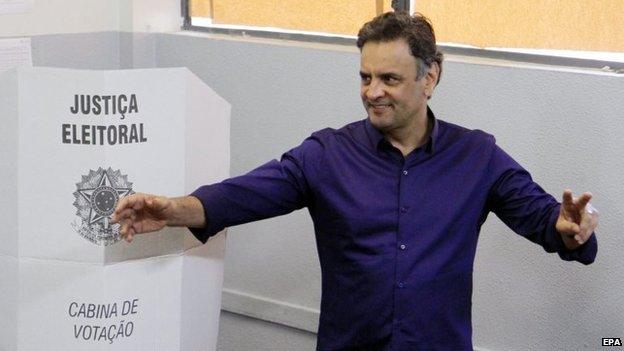
The company's corporate finances have been hit and Petrobras has had to buy expensive petrol abroad only to sell it at lower prices on the domestic market to avoid fuelling inflation.
To make matters worse the company is investigating an alleged bribery scheme reportedly linked to top politicians, some of them members of the governing Workers' Party and groups which back President Rousseff.
Ms Rousseff and her Workers' Party in turn are likely to point to corruption scandals during the time Mr Neves's party was in power in the 1990s.
Mr Neves himself has had corruption allegations levelled against him over the building of an airport in his home state during his tenure as governor.
He has denied the allegations, saying that the airport was built following a proper tender process that had been investigated and cleared by a state audit body.
Mr Neves is currently riding on a wave of sentiment against the Workers' Party generated by a mix of political fatigue following its 12 years in power and a perception that the governing party has mismanaged the economy and been tainted by too many corruption scandals.
But if he is to narrow Ms Rousseff's eight-percentage-point lead, Mr Neves will have to persuade voters that does not just stand for change - but for change in the right direction.
- Published6 October 2014

- Published6 October 2014
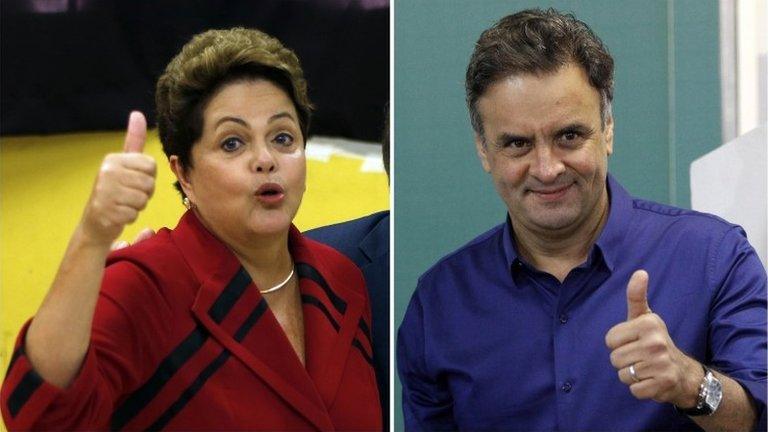
- Published8 September 2014
